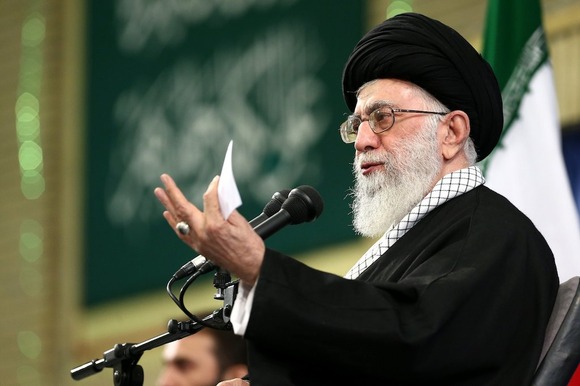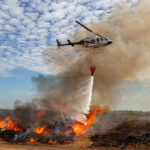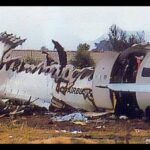Iran’s Supreme Leader Ayatollah Ali Khamenei has declared that recent US strikes on Iran’s nuclear facilities achieved “nothing significant,” marking his first public appearance since a ceasefire was agreed with Israel on Tuesday.
In a televised address aired Thursday morning, Khamenei insisted that the American military operation had failed to meaningfully damage Iran’s nuclear programme, while characterizing Tehran’s retaliatory strike on a US air base in Qatar as a “heavy blow.” His comments came amid continued US assertions that the strikes had dealt a major setback to Iran’s nuclear ambitions.
Washington has maintained its position, with US Defence Secretary Pete Hegseth reaffirming that intelligence shared between the United States and Israel demonstrated the operation had “significantly damaged” Iran’s nuclear capabilities, setting progress back by years. Speaking at a Pentagon news conference alongside senior general Dan Caine, Hegseth described the mission as a “historic success” and claimed that Iran’s key enrichment facilities had been rendered “inoperable.”
Hegseth, responding to press inquiries, dismissed reports that the enriched uranium stockpiled at the Fordo facility—a heavily fortified underground site—had been moved prior to the strikes. “We’re not aware of any intelligence suggesting that,” he stated.
Khamenei’s address followed a week-long absence from public view, during which speculation mounted over his location. Iranian officials have confirmed that he had been in a secure location amid escalating regional conflict. On Thursday, authorities did not disclose his exact whereabouts during the broadcast, though a senior official acknowledged earlier in the week that the Supreme Leader was sheltering in a safe place.
In his message, Khamenei issued a pointed warning to the United States, threatening additional retaliatory strikes on American bases in the Middle East if Iran faces further attacks. He declared that Iran had emerged victorious in its standoff with both the US and Israel.
“They could not accomplish anything and failed to achieve their objective,” Khamenei said, accusing former President Donald Trump of overstating the impact of the military operation. Referencing the missile strike on the US base in Qatar, he added, “This incident is repeatable. If any aggression takes place again, the cost for the aggressor will undoubtedly be very high.”
No fatalities were reported in the Qatar base attack, and US officials stated that the base itself remained undamaged. Trump, meanwhile, claimed that the attack had been anticipated and flagged in advance.
The confrontation between Iran and Israel erupted on June 13, after Israeli Prime Minister Benjamin Netanyahu warned that Iran was dangerously close to developing a nuclear weapon. A day earlier, the International Atomic Energy Agency’s (IAEA) board of governors accused Iran of violating its nuclear non-proliferation commitments for the first time in two decades.
Iran has long maintained that its nuclear activities are solely for peaceful, civilian purposes and denies any intention to develop nuclear weapons.
On Thursday, Iran’s parliament approved legislation that ends the country’s cooperation with the IAEA, effectively suspending access for nuclear inspectors to Iranian facilities.
Iran’s health ministry reported that 610 people were killed in the 12 days of Israeli airstrikes, while Israeli officials said their death toll stood at 28.
The United States entered the conflict directly last weekend, launching strikes on three key Iranian nuclear sites—Fordo, Natanz, and Isfahan—before President Trump intervened to mediate a ceasefire between Israel and Iran. Though the ceasefire initially appeared unstable, with continued exchanges of fire, tensions have since eased somewhat.
UN nuclear watchdog chief Rafael Grossi commented on Wednesday that there was a “real possibility” that Iran may have relocated much of its stockpile of highly enriched uranium before the US strikes began.






